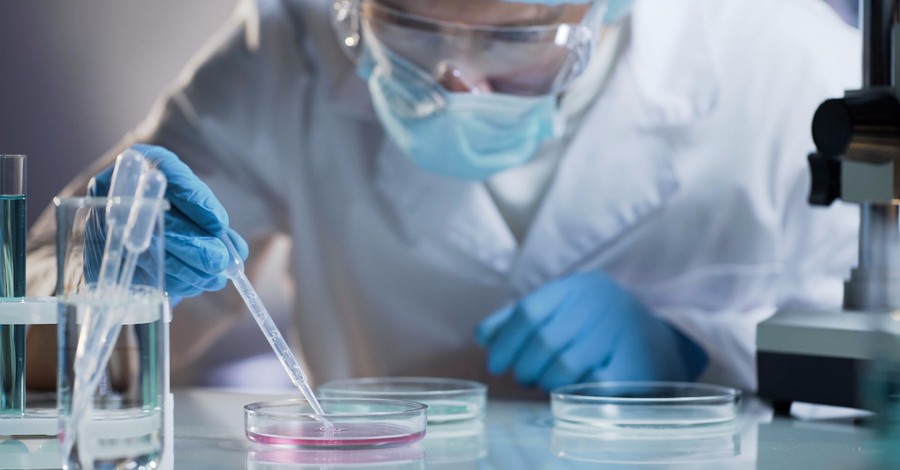
Last month, a WIRED Magazine story described a storm brewing in the world of sperm donation. As at-home DNA test kits become more popular, people all over the world are making unexpected family discoveries. These discoveries have a name, apparently: “NPE’s,” or “Non-Parental Events.”
At-home DNA test-takers are discovering dads or half-siblings or dozens of kids they never knew about. And they’re mostly not happy about it. In fact, a growing subculture, complete with lobbying organizations, self-help literature, and support groups is emerging for people making these unwelcome genetic discoveries. One therapist, who has developed a podcast dedicated to walking people through these kinds of situations, told WIRED that people who uncover hidden family secrets through DNA testing often exhibit the classic cycle of grief. After the initial shock comes anger and depression. Their stories are all the reasons we need to take a sober-minded look at sperm donation, a practice that goes largely unquestioned in Western societies.
The 4-billion-dollar sperm donation industry is shockingly unregulated in the U.S. Children born from sperm donors are among the victims of the bad ideas of the sexual revolution. They do not have the legal right to request information about their biological fathers until they turn 18, which means that, in most states, these children don’t even have a right to their own family medical histories.
Anyone who opposes or questions assisted reproduction technologies, like sperm donation, are often called prudish, cast as the grumpy old grandpa huffing about a teenager’s blue hair. After all, we are told, it’s not really harming anyone. In reality, there are plenty of reasons to oppose sperm donation even if we don’t find the practice, well, icky.
First of all, the industry dehumanizes men. The God-given ability to procreate is transformed into a crude financial transaction. As is the case with egg donation, the way the “product” is marketed dehumanizes image bearers, reducing them to a list of so-called “desirable qualities, such as height, hair color; supposed athletic ability, or where they went to college. This isn’t some “enlightened” new way to make a modern family. It’s re-branded eugenics.
Sperm donation also dehumanizes children, robbing them of the right to know who their dad is and leaving them in the dark as to whether or not their dad even knows they exist. In fact, the industry relies on secrecy. The FDA places no rules on how many children a sperm bank allows to be born of just one donor. While some banks impose their own limits, the country’s largest sperm bank in California limit is 25 to 30 “family units” per man. A “family unit,” by the way, might include multiples, meaning a set of twins or triplets only counts as one unit.
While some activists have been calling for more regulation on the sperm donation industry for years, the problems inherent to a system that’s corrupt from the ground up cannot be regulated away. The corruption in the sperm donation industry is rooted in a warped view of human sexuality and family. God’s design for families is baked into the nature of reality, much like gravity. Children hunger for connection with their parents. Studies suggest that many adoptees do better emotionally and socially when they know who their biological parents are and understand the adoption process.
Of course, sperm donation doesn’t repair a fracture like adoption does. Rather, it creates a fracture, permitting and even incentivizing a view of children as products. In this country, eighty percent of customers who use sperm banks are either same-sex couples, who have intentionally chosen a sterile union only to demand children, or women intentionally pursuing single motherhood, despite the overwhelming scientific literature that shows kids do best with both a mom and a dad. Or as the headline of a New Yorker article put it years ago, Dan Quayle was right.
This WIRED article tells what is, in fact, an old story with new variables: of people who long for family but suffer in a culture where the family has become so broken. Whenever children and family-building are turned into big business, trails of grieving people are left, reeling from what we call “Non-Parental Events.”
The brokenness at the heart of the sperm donation industry begins with the man who views pornography to sell a genetic product and ends with a child shocked to learn his dad isn’t really his dad. All which serves to remind us that just because something is culturally normal doesn’t mean it should be. True moral clarity won’t come from whether or not we find something weird or icky, but only from God’s created intent for the world and for His image bearers which is, in His own words, good.
Publication date: August 11, 2020
Photo courtesy: ©Getty Images/Motortion
The views expressed in this commentary do not necessarily reflect those of CrosswalkHeadlines.
BreakPoint is a program of the Colson Center for Christian Worldview. BreakPoint commentaries offer incisive content people can't find anywhere else; content that cuts through the fog of relativism and the news cycle with truth and compassion. Founded by Chuck Colson (1931 – 2012) in 1991 as a daily radio broadcast, BreakPoint provides a Christian perspective on today's news and trends. Today, you can get it in written and a variety of audio formats: on the web, the radio, or your favorite podcast app on the go.
John Stonestreet is President of the Colson Center for Christian Worldview, and radio host of BreakPoint, a daily national radio program providing thought-provoking commentaries on current events and life issues from a biblical worldview. John holds degrees from Trinity Evangelical Divinity School (IL) and Bryan College (TN), and is the co-author of Making Sense of Your World: A Biblical Worldview.











